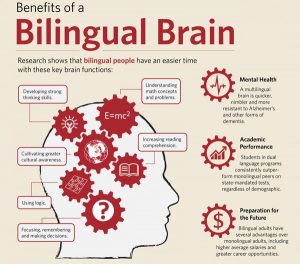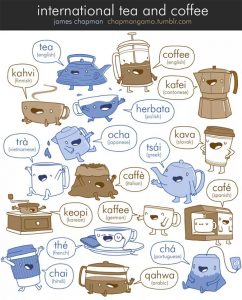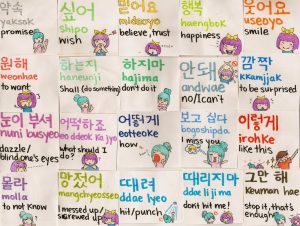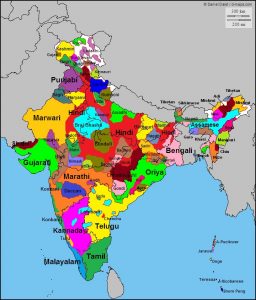February 9, 2016
by ISB Native Language Programs
0 comments
February 4, 2016
by ISB Native Language Programs
0 comments
Classroom Opportunities
February 2, 2016
by ISB Native Language Programs
0 comments
Ask Olga! All Who Contribute to a Child’s Language Development “Participate in a Miracle”
Hello everyone,
Olga Steklova worked at ISB for many years as an EAL teacher. Currently she is observing her grand-daughter develop a number of languages simultaneously. She has kindly offered to keep an observational diary of this development and is happy to share bits and pieces with us over time.
Olga speaks at least three languages (Russian, English and French) and maybe some others she hasn’t told me about! She is an expert in language development and is happy to explore any questions you may have about your child’s bilingual / tri-lingual development. So, subscribe to the blog and Ask Olga!
Paul Dufficy, Mother Tongue Coordinator
Here is Olga’s introductory post:
Parents and grandparents, aunts and uncles, friends and teachers . . . all of us who purposely or accidentally contribute to a child’s language development, participate in a miracle. Despite the fact that language is one of our natural skills, we are filled with awe every time we witness a toddler spontaneously translating her emerging thoughts into meaningful utterances – especially when it is done in several languages.
Our granddaughter, born to French/Russian parents residing in London, is going to be tri-lingual – at least this is the goal her parents have set for her even before she was born. Of course, ‘a goal without a plan is just a wish’ (Antoine De Saint Exupery). Therefore a goal was set and a plan has been drawn in order to reach it, and all family members were brought on board. The two main considerations in setting a goal and drawing a plan were maximum exposure to both languages and consistency in their use. Each parent and grandparent was to speak his or her mother tongue while the common language between parents was to be French. English will be added later as she begins her social interaction and schooling in London. Now, the journey begins . . .
Grandparents, unlike parents, have a chance to observe the linguistic achievements of their grandchildren both from within and from without, as they take a break from attending to daily needs and routines. They also stay on the fringe of decision-making and can only offer advice when asked for it. However their role should not be underestimated. Once the plan is drawn, grandparents become active contributors to its implementation. They provide an essential link to the cultural heritage and family traditions encompassed in their native language.
What a thrill it is when a child begins to make attempts at making meaning: pointing, attracting attention, asking, demanding. It always comes as a surprise that while a toddler cannot yet do much verbally, her receptive language is amazingly rich! Intuitively, she knows that the same message can be conveyed in different ways. (When did that happen??) She takes it for granted that different members of the family use different words to communicate.
This knowledge becomes more formal when she herself takes on the role of ‘language police’. Listening, or rather being exposed while playing, to parents’ conversation in French, she hears her Russian mama say ‘oui’ . . . That is not right – she rushes to the scene catching Mama in the act of ‘breaking the rules’! ‘Mama, non ‘oui’, Papa ‘oui’, Mama ‘da’! She herself is allowed to break the rules, mixing the two languages, picking perhaps the words that are easier to say, or the ones that were ‘imprinted’ first . . . We all worry a bit – is she a late bloomer? Is exposure to two languages making her speech delayed? Is mixing languages ‘normal’? Should we think of hiring a speech therapist?? Worries, worries – the natural state of a parent. All we can do is provide the raw material – the living language that she will absorb, digest, and use creatively – and trust that the ‘visible’ part of the linguistic ‘iceberg’ will grow as long as the foundation is strong.
January 29, 2016
by ISB Native Language Programs
0 comments
A new book that might be of interest
Maintaining Three Languages The Teenage Years
Author: Xiao-lei Wang
Format: Paperback – 328 pages
ISBN: 9781783094479
Published: 05 Nov 2015
Publisher: Multilingual Matters
January 29, 2016
by ISB Native Language Programs
0 comments
January 29, 2016
by ISB Native Language Programs
0 comments
January 27, 2016
by ISB Native Language Programs
0 comments
Some great images
January 20, 2016
by ISB Native Language Programs
0 comments
A bilingual program in a US Middle School
In this video you can see a Middle School in the US design a bilingual (Spanish / English) program.
December 2, 2015
by ISB Native Language Programs
0 comments
Bilingualism
November 23, 2015
by ISB Native Language Programs
0 comments






